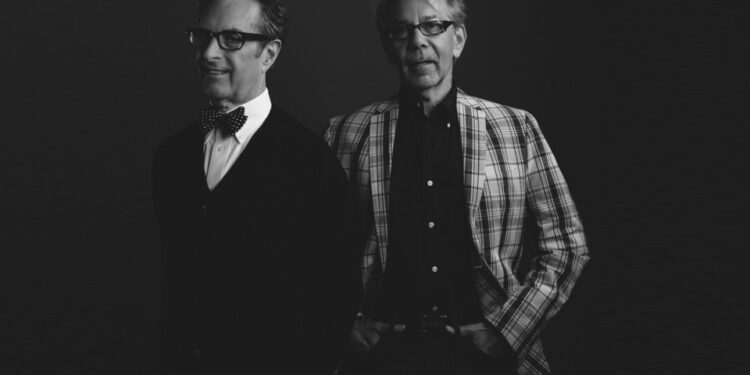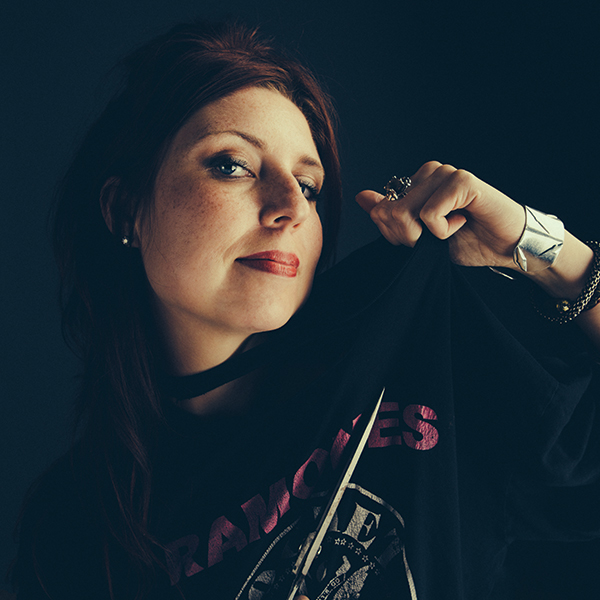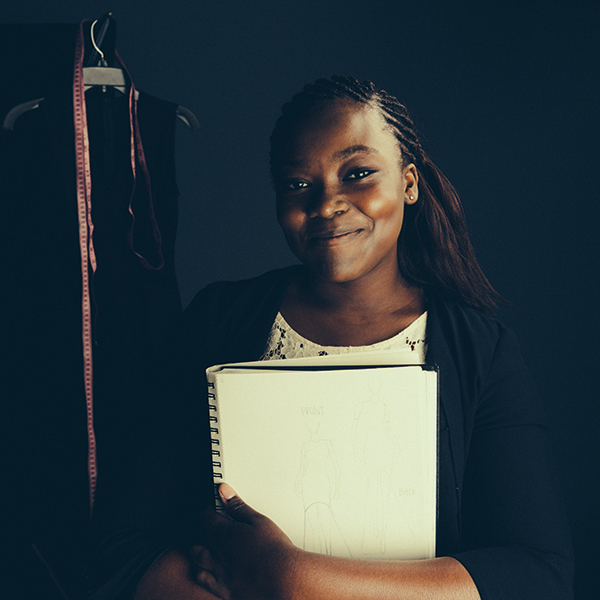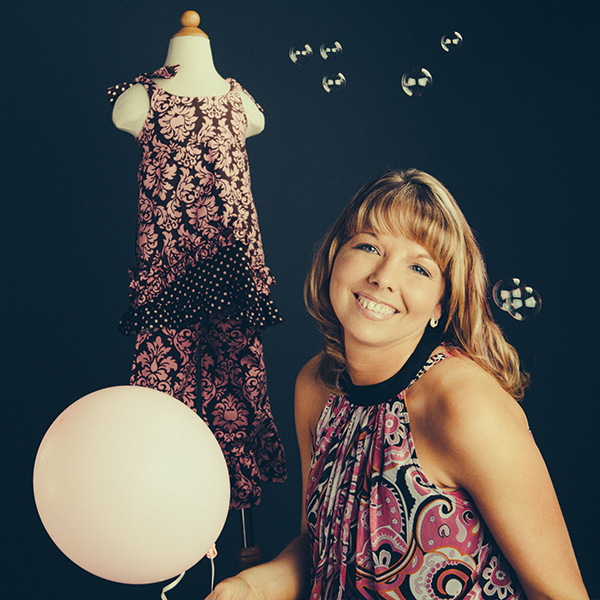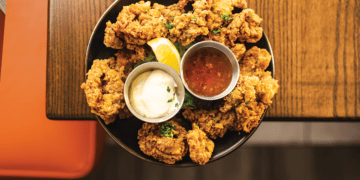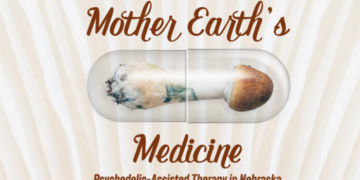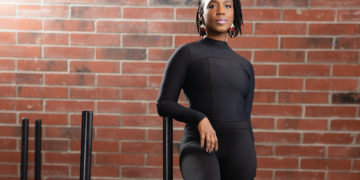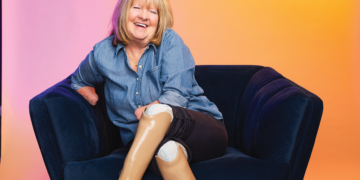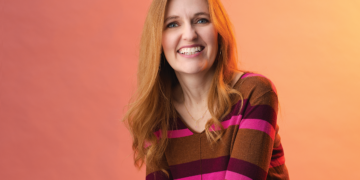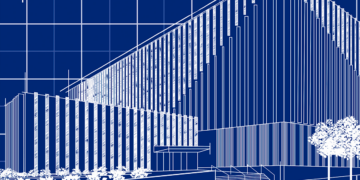When Nick Hudson first helped found Omaha Fashion Week (OFW) back in 2008, he says some people thought it was a bit of a joke. Six years later, no one’s laughing. During the first year, about 2,000 people attended the event to see creations by 12 designers; by the end of this year, 51 designers will have shown their work, with an estimated 8,000 people attending—and the event just keeps getting bigger and better.
Unlike fashion weeks in New York, London, and Paris, OFW isn’t just about all things sartorial. It serves as a platform for up-and-coming designers to learn about the fashion industry and introduce their creations to the public, all without having to pay a fee to participate. “A lot of designers come from wealthy backgrounds,” says Hudson. “[Making it in this industry] requires resources. The vast majority of our designers, though, come from limited means and challenging economic backgrounds. [With OFW], there’s no financial barrier.”
To this end, Hudson founded the Fashion Institute Midwest, a program that helps designers learn about all aspects of the fashion industry from developing their lines to getting them to the public. Designers apply online, specifying what they’d like to focus on and what they hope to get out of the program. Some want to enhance their opportunities for getting into top design schools; others hope to build their businesses.
Typically, 70-90 designers apply annually with 40-50 making the cut. The designers are all from the Midwest, coming from states like Nebraska, Iowa, Kansas, and Missouri. Ages range from as young as 13 to those in their early 30s. A selection panel consisting of nine fashion industry experts interviews the applicants. “Mainly, people audition to be a part of the show,” Hudson explains. Brook Hudson (Nick’s wife), who manages OFW’s day-to-day operations, adds, “The cool thing about the interviews is that the panel doesn’t just decide. We give the designers feedback on how to sharpen their focus and ideas. It’s a conversation.”
From there, designers work with OFW’s team of volunteer mentors to learn about the fashion industry. They receive expert advice on subjects such as where to get fabric, how best to show off designs, and how to pitch and promote their lines. They also participate in workshops or roundtable discussions focusing on topics like doing consumer research and how to broaden their appeal for retail markets. This forms the core of the program. “What people don’t realize,” Hudson points out, “is that there is constant mentoring and support taking place throughout the year behind the scenes.”
Rick Carey and David Scott (“The Style Guys”), Omaha fashion stylists and hair and makeup legends who have worked at fashion shows in New York, Paris, and Miami and at international photo shoots, became involved as panelists and designer mentors this past February. “The mentoring program is amazing. We help the designers get their collections together so [they] look fantastic,” explains Carey. “As Tim Gunn of Project Runway fame says, our job is to help the designers ‘make it work.’”
Scott adds, “From those original sketches on a piece of paper, no one realizes where designers go from there. You have to find the perfect seamstress who can sew that perfect zipper or perfect hook, someone who knows how to work with a specific type of fabric. We’re very much into the total look.”
Another critical component is finding the perfect models to showcase the collections. Alyssa Dilts, director of Develop Model Management, does the casting calls for OFW and works with designers to select models. “I compile the list, and the designers have a week to select [their models],” says Dilts, who has done some professional modeling herself. “I then finagle the schedule for them to coordinate and make sure the models are available.”
Equally important are all the other volunteers who make OFW possible. “The public has no clue about what’s involved,” says Scott. “They really don’t realize how many people it takes to put it on.”
Indeed, volunteers do everything from setting up and tearing down the catwalks, marketing the event, distributing press passes and VIP bags, coordinating the action backstage, and greeting and seating guests. Makeup artists and hairstylists similarly volunteer their time and talent. “We’ve got a great community of people involved who all donate their time and expertise,” says Hudson. “It’s unheard of. It’s a huge part of why we’ve been able to grow so fast. That’s why we’re able to keep building…Because of the community.”
What’s new and exciting for OFW this August? The six-night event will take place downtown in the Capitol District (10th & Capitol streets area) in a 30,000-square-foot space composed of one tent flanked by two smaller ones and after-party courtyards featuring DJs and live bands. Designers/artists Dan Richters and Buf Reynolds are collaborating to create a large-scale art installation through which people will enter the event. “It’s the first time we’re doing it. We’re graduating to a different level,” notes Hudson.
Given all this, it’s no wonder that in just six years, OFW has emerged as one of the top fashion weeks in the Midwest, one that attracts experts and designers from around the country. “It’s more than an event,” Brook proudly points out. “We’re on the verge of creating a new industry for Omaha.
Omaha Fashion Week takes place August 19-24. Tickets range from $30-70; Saturday Finale VIP tables (for 10) can be reserved for $1,000. To purchase tickets and for more information, visit omahafashionweek.com.br
OFW SCHEDULE
brMonday 8/19: Children’s WearbrTuesday 8/20: Avant-GardebrWednesday 8/21: Ready To WearbrThursday 8/22: Evening WearbrFriday 8/23: Men’s & SwimwearbrSaturday 8/24: Grand Finale Gala


